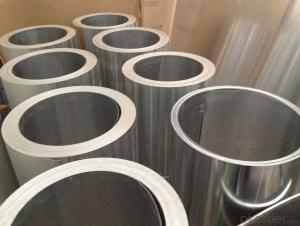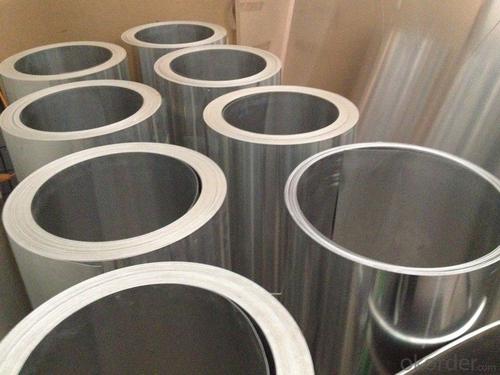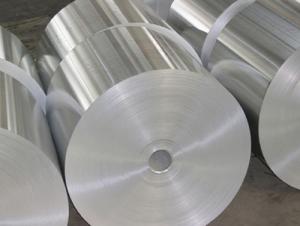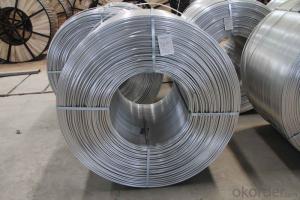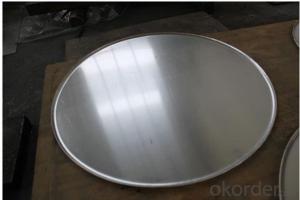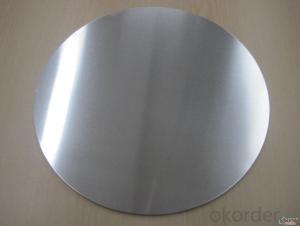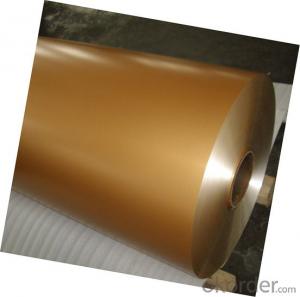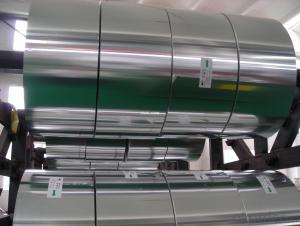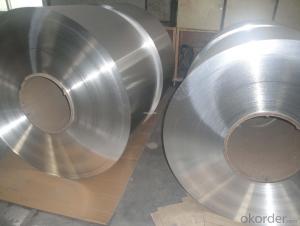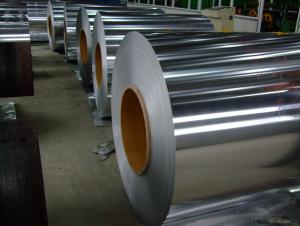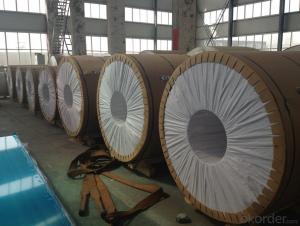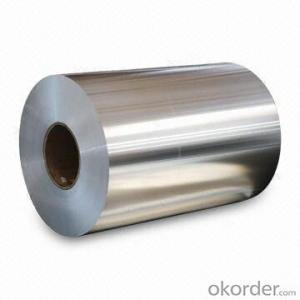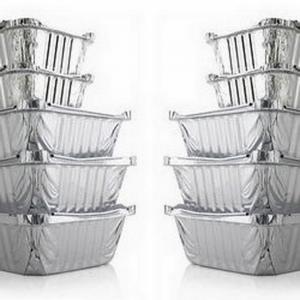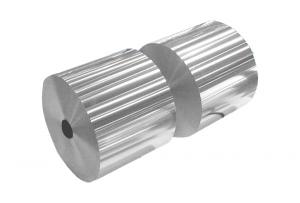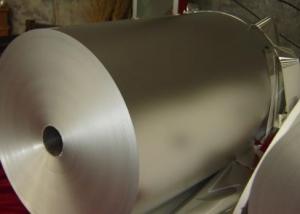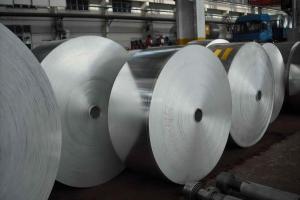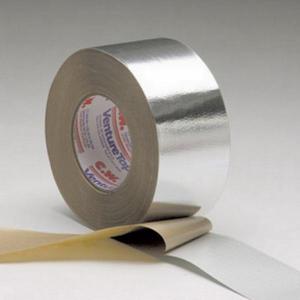Aluminum Coated Aluminum Coil for Gutter Made in China
- Loading Port:
- Shanghai
- Payment Terms:
- TT OR LC
- Min Order Qty:
- 5 m.t.
- Supply Capability:
- 100000 m.t./month
OKorder Service Pledge
OKorder Financial Service
You Might Also Like
Specification
We produce color coated aluminum coil and aluminum foil for food container professionally.
The detail information as following:
Thickness :0.05mm-0.5mm
Width :20-1500mm
Alloy : 1100,3003,8011 and other different series
Temper : H12/H13/H22/H24 and others
Usege: food container and industrial usage.
Pack details:pack in rolls with plastic film by wooden box.
Container loading: 1x20ft container can load about 18 tons.
Company Information
CNBM is in aluminum foil, coil, sheet, plate for more than 10 years, thus we have rich product, technology and market experiences. With the world’s top aluminum processing equipments, experienced technical staff, cooperative and professional sales team, and the enterprise concept of responsibility and sharing, we have been widely focused since the day set up, and has gained high praise from customers home and abroad until now.
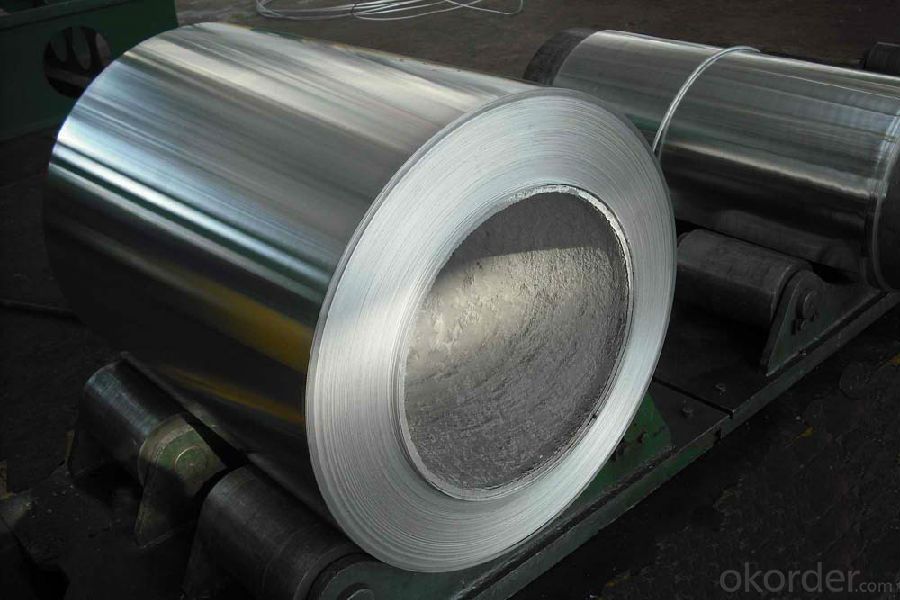
We specially produce and sell all kinds of aluminum foil, coil, sheet and plate with different sizes and applications. For Foil product, the main gauge ranged from 0.006mic to 0.10mm, and width ranged from 200mm to 2000mm. Alloys are 1235/ 1050/1060/1200/8079/8011/8006 etc, and ID is 76mm, 152mm. The main application includes flexible package, cigarette foil, golden card foil, pharmaceutical foil, household foil, container foil, air conditioner foil, lid foil, beer mark foil etc. We also can supply aluminum coil, strip, sheet and plate in alloy of 1000 series, 3000 series, 5000 series, 6000 series and 8000 series etc.
CNBM has passed ISO9001 and ISO14001 successfully, and also approved by American Food and Drug Administration (FDA). By the good product quality and professional service, we have set up a complete sales network. Until now, our products has exported to more than 20 countries and regions including Europe, USA, Canada, Brazil, Southeast Asia and middle east etc.
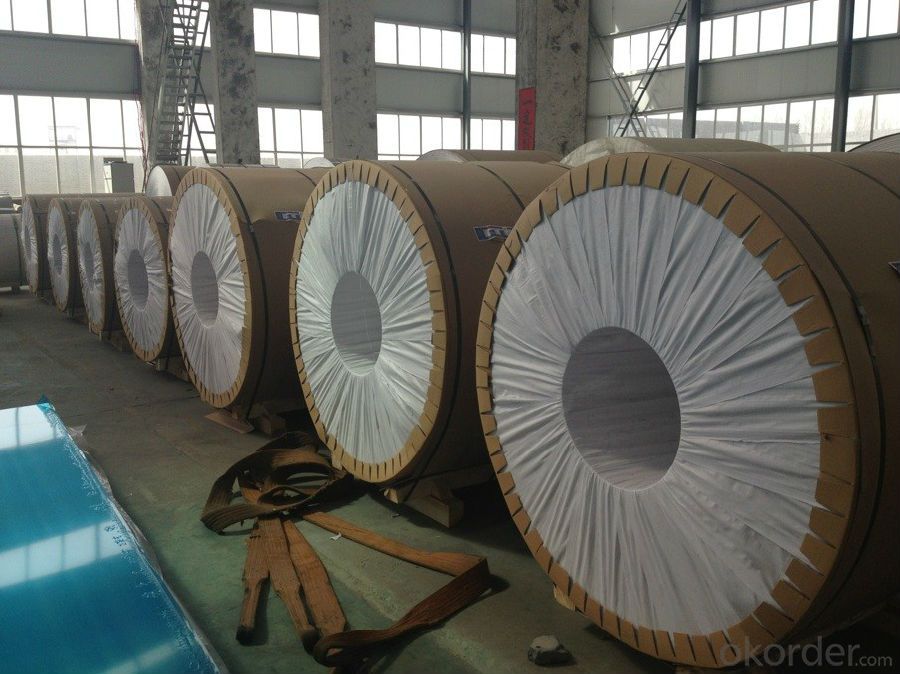
Our main products for aluminum coils are as follows:
Commodity | Alloy | Temper | Thickness /mm | Width /mm | |
Base material | 1235 1200 1140 8*** | H14 H18 | 0.25-1.00 | 950-1340 | |
Coil for PS | 1050 1060 | H18 | ≥0.2 | 830/920 1030/1050 | |
Sheets for PS | 1050 1060 1070 | H18 | 0.13-0.3 | 650-1300 | |
Strip for venetian blinds | 5052 | H19 | 0.13-0.3 | 300-1300 | |
Coils for composite panels | 1100 3003 3005 | H18/HX2 HX4/HX6 HX8 | 0.03-1.0 | 1000-1300 | |
Coils for other uses | 1100 1235 3004 5052 8011 | H14 H18 H24 O | 0.3-0.4 | 1000-1600 | |
Sheets/Strips for other uses | 5052 | O/H32/H34 | 0.07-2.0 | 950-1550 | |
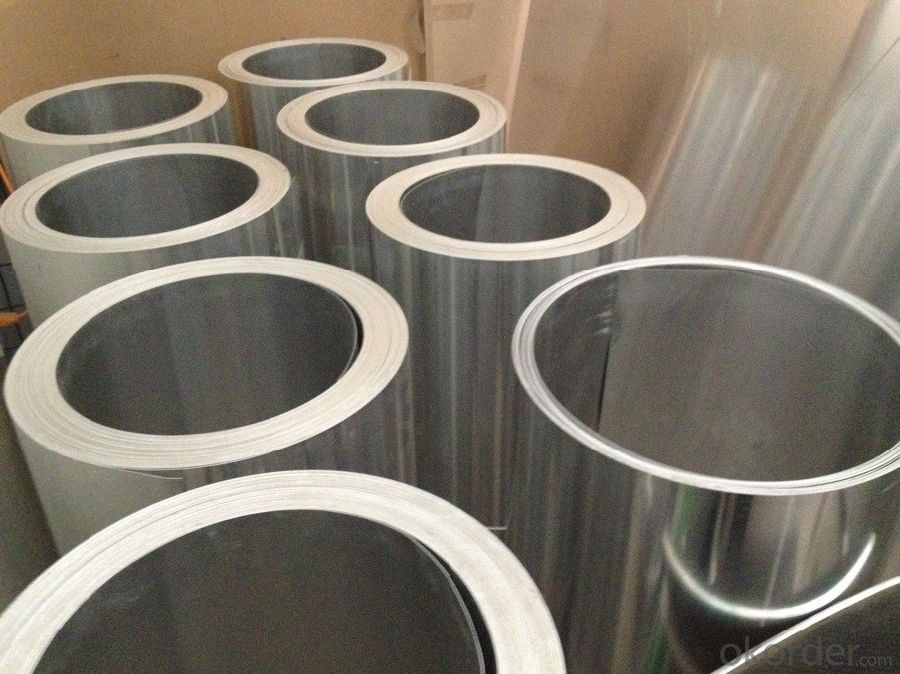
Our Services
CNBM is ready to assist with any product needs or enquiries. We value our customers and welcome your thoughts and feedback.
Please send comments, questions and requests through alibaba or our personal contact so they can be directed to the appropriate department.
About samples: Based on our company rules, a few samples are willing to be offered, but clients are requested to pay freight.
Working time:9:00~17:30(GM+8) from Monday to Friday, but you also can contact with us via personal contact information during our leisure time. We will try our best to offer you service in 24*7 hours.
Any quality, quantity problems are occured, response you will get in time not over more 24 hours after we recieve your complains. Problems will be solved in one week throught friendly negotiation.
- Q: This question asks for an enumeration of different types of aluminum alloys.
- <p>Aluminum alloys are categorized based on their primary alloying elements and their applications. Some common types include: 1) 1000 series (99% pure aluminum), 2) 2000 series (alloyed with copper), 3) 3000 series (alloyed with manganese), 4) 4000 series (alloyed with silicon), 5) 5000 series (alloyed with magnesium), 6) 6000 series (alloyed with magnesium and silicon), and 7) 7000 series (alloyed with zinc). These alloys have various properties, making them suitable for different industries such as aerospace, automotive, and construction.</p>
- Q: This question asks for methods to protect aluminum from corrosion.
- <p>Aluminum corrosion can be prevented through several methods. One common approach is anodizing, which involves applying a protective oxide layer to the aluminum surface. This process enhances the metal's resistance to corrosion. Another method is using protective coatings such as paints or enamels that act as a barrier against corrosive elements. Cathodic protection, where aluminum is connected to a more easily corroded metal, can also be used. Additionally, ensuring proper design and avoiding contact with aggressive chemicals can minimize corrosion. Regular maintenance and inspection can help detect and address corrosion issues early.</p>
- Q: Explain how the inclusion of copper in aluminum alloys influences their strength and ductility.
- <p>Adding copper to aluminum alloys significantly increases their strength, particularly in the form of tensile and yield strength. Copper acts as a hardening agent, creating a more rigid structure within the alloy. However, this increase in strength often comes at the expense of ductility. As copper content rises, the ductility of the aluminum alloy decreases because copper reduces the alloy's ability to deform under stress without fracturing. The balance between strength and ductility is crucial in alloy design, as higher strength alloys may be less suitable for applications requiring formability and flexibility.</p>
- Q: Is it safe and effective to use aluminum foil to create a sandwich in a microwave oven?
- <p>No, you should not use aluminum foil to make a sandwich in a microwave oven. Aluminum foil can cause sparks and potentially start a fire due to its reflective properties and the microwave's electromagnetic radiation. It can also damage the microwave's interior. Instead, use microwave-safe containers or wraps designed for microwaving.</p>
- Q: Is it possible to utilize aluminum in medical applications?
- <p>Yes, aluminum is used in medicine, though not directly ingested or injected. It is utilized in the form of aluminum salts in vaccines as an adjuvant to enhance the body's immune response. Aluminum is also used in medical equipment, such as in the manufacturing of certain types of surgical tools and implants due to its lightweight and corrosion-resistant properties. However, its use is carefully regulated due to concerns about biocompatibility and potential toxicity.</p>
- Q: Is it possible to utilize aluminum in the manufacturing of tools and equipment?
- <p>Yes, aluminum can be used to make tools and equipment. It is valued for its lightweight, corrosion resistance, and high strength-to-weight ratio. Aluminum is commonly used in various applications such as aircraft manufacturing, automotive parts, and consumer electronics. It is also used in the construction of certain types of tools, particularly those that require lightness and durability without the need for extreme strength. However, for applications requiring high strength or resistance to high temperatures, other materials might be more suitable.</p>
- Q: Explain the economic and job market implications of using aluminum.
- <p>The use of aluminum has significant impacts on the economy and job market. It is a key material in various industries, including construction, automotive, aerospace, and consumer goods, which drives demand and economic growth. Aluminum production and processing create jobs directly in mining, refining, and manufacturing sectors, and indirectly in related services and supply chains. Additionally, its lightweight and corrosion-resistant properties make it valuable for energy-efficient transportation, contributing to environmental sustainability and opening new job opportunities in green technologies. However, it also presents challenges such as the need for energy-intensive production processes and the management of waste, which require innovative solutions and can lead to job creation in recycling and environmental management.</p>
- Q: Explain the process by which aluminum forms alloys.
- <p>Aluminum forms alloys by combining with other elements, such as copper, magnesium, silicon, manganese, and zinc, among others. This process involves melting aluminum and the alloying elements together in a furnace. The molten mixture is then cooled and solidified to form an alloy. The resulting alloy has properties that are different from pure aluminum, such as increased strength, corrosion resistance, and improved machinability. The specific properties of the alloy depend on the elements added and their proportions. Alloying allows for the customization of aluminum's characteristics to suit various applications in industries like aerospace, automotive, and construction.</p>
- Q: Explain the impact of aluminum on the transportation system when it is incorporated into automobiles.
- <p>Aluminum has a significant impact on the transportation system when used in automobiles. It is lightweight, which improves fuel efficiency by reducing the overall weight of the vehicle. This reduction in weight leads to lower emissions, as less fuel is consumed. Aluminum's durability and resistance to corrosion also contribute to the longevity of vehicles, reducing the need for frequent repairs or replacements. Additionally, aluminum's recyclability helps in reducing waste and conserving resources, which is beneficial for environmental sustainability. Overall, the use of aluminum in automobiles enhances performance, reduces environmental impact, and promotes a more sustainable transportation system.</p>
- Q: Why is syNeo, unlike most other aluminum salt antiperspirant, designed to prevent perspiration while removing odors and to best fit the skin?
- There is no need to use any other antiperspirant. Other products may cause damage to the skin because of the substance it contains, or its effects on the skin.
Send your message to us
Aluminum Coated Aluminum Coil for Gutter Made in China
- Loading Port:
- Shanghai
- Payment Terms:
- TT OR LC
- Min Order Qty:
- 5 m.t.
- Supply Capability:
- 100000 m.t./month
OKorder Service Pledge
OKorder Financial Service
Similar products
Hot products
Hot Searches
Related keywords
